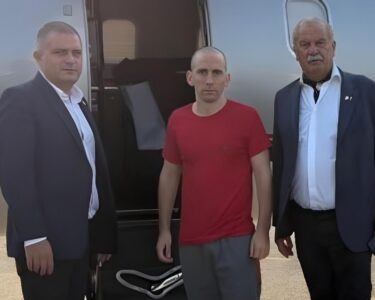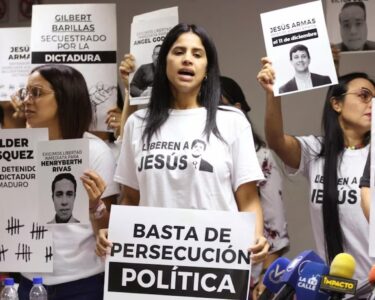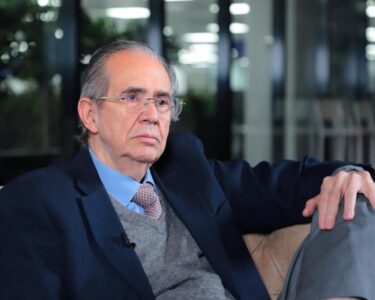In Venezuela, every political detainee faces the same prefabricated charges—terrorism, treason, incitement to hatred, money laundering, and criminal association. The Castellanos case shows repression no longer silences individuals; it punishes families as a method of control.
On October 16, in the city of Barquisimeto, police officers stormed into a modest home without a warrant. They did not leave with stolen goods or contraband. They left with people: Omario Castellanos, a young reporter and recent graduate in social communication from Yacambú University, along with his mother, Blanca Guerrero, and his brother José.
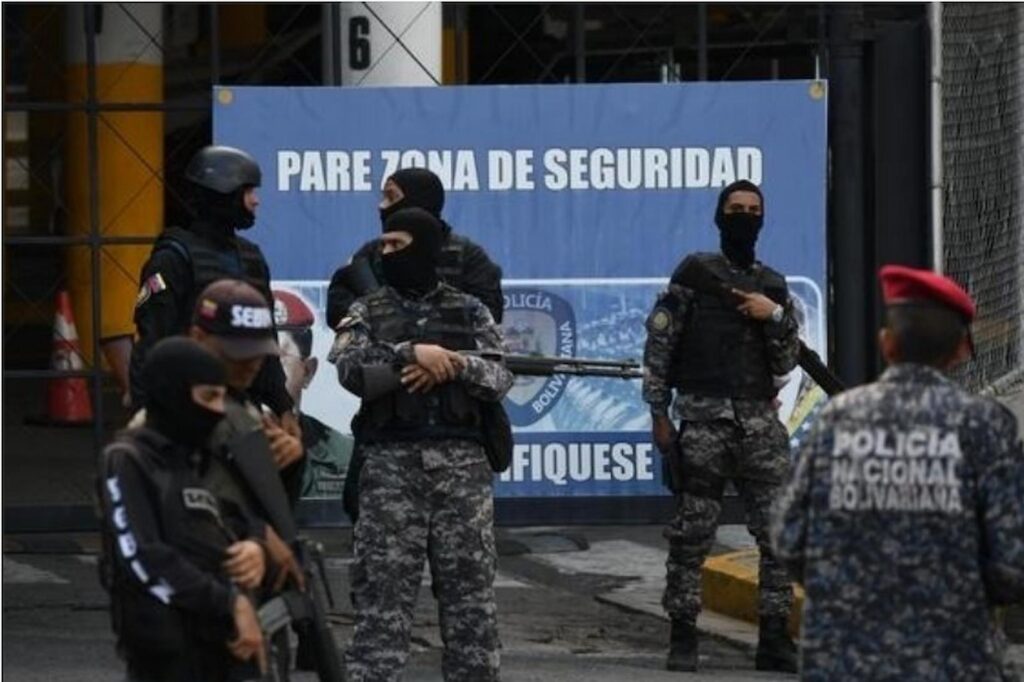
All three were accused of the same set of crimes—terrorism, treason, incitement to hatred, money laundering, and criminal association. In Venezuela, this is no coincidence. Every political detainee is charged with the same “terror card,” a prepackaged script that has become the regime’s legal Swiss army knife.
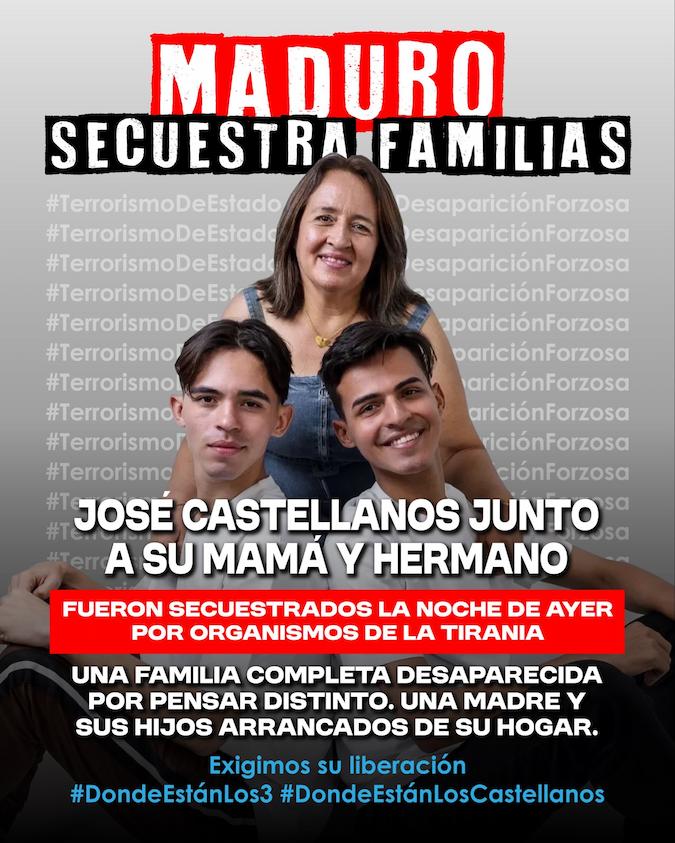
A Family Behind Bars
The case of Castellanos is striking not only because of his youth and profession, but because the state chose to imprison his family as well. This is not simply the silencing of an individual voice; it is the deliberate destruction of a support network. By jailing mother and son together, the authorities send a message: dissent is contagious, and punishment will spread to those closest to you.
The family was transferred to Yare prison, more than 300 kilometers from their home in Lara state. Yare is not just a prison; it is a symbol. It has long been associated with political prisoners and with the regime’s determination to bury opponents far from their communities. For Castellanos, who suffers from circulation problems that have worsened in detention, the transfer is also a health threat. His legs are swollen, and the Sindicato Nacional de Trabajadores de la Prensa has demanded urgent medical attention.
The Numbers Behind the Pattern
According to Foro Penal, as of late October 2025, Venezuela holds 875 political prisoners: 702 civilians and 173 military personnel. Among them are 112 women and four minors. The figures reveal a system that no longer relies on selective repression but on mass incarceration as a tool of governance.
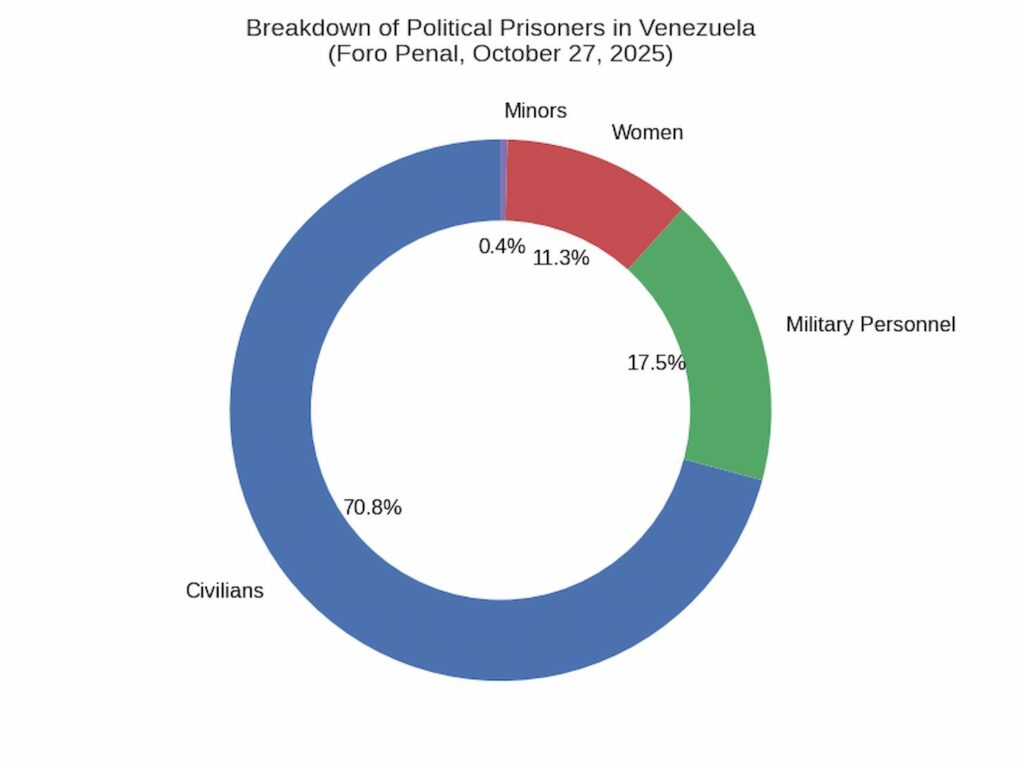
The charges are always the same. Terrorism. Treason. Incitement to hatred. Money laundering. Criminal association. These accusations are not tailored to evidence; they are imposed like a rubber stamp.
The repetition itself is the point: to normalize the idea that any act of dissent, no matter how minor, can be equated with the gravest crimes against the state.
Echoes of Totalitarian Traditions
The imprisonment of entire families is not a Venezuelan invention. Stalin perfected the practice with the doctrine of chlenovrede—“guilt by kinship”—which justified sending wives, children, and siblings of the accused to the gulag. In North Korea, the principle of “three generations of punishment” ensures that dissenters’ descendants pay for their supposed crimes. Mao’s China institutionalized collective punishment during the Cultural Revolution, branding entire families as “counterrevolutionary.”
By detaining Castellanos alongside his mother and brother, the Maduro government places itself squarely in this lineage. The logic is identical: repression is not only about silencing an individual but about breaking the bonds of solidarity that might sustain resistance.
The imprisonment of entire families is not a Venezuelan invention. Stalin perfected the practice with the doctrine of chlenovrede—“guilt by kinship”—which justified sending wives, children, and siblings of the accused to the gulagThe Double Standard of “Incitement to Hatred”
Perhaps the most grotesque element of the charges is the accusation of “incitement to hatred.” Castellanos, who covered tourism and sports for Soy Larense, is accused of spreading hate. Yet the true incitement—the one broadcast daily from official platforms, where opponents are branded as traitors, enemies, or vermin—remains untouched.
This double standard is deliberate. The law is not applied to curb dangerous speech; it is applied to criminalize dissent. The state’s own rhetoric, which often calls for the annihilation of political adversaries, is never sanctioned. Instead, the label of “hate” is weaponized against those who dare to report, question, or organize.
Testimonies of Arbitrary Power
Colleagues from Yacambú University describe Castellanos as a quiet, diligent student who had already completed his coursework and was waiting for his diploma. “He was covering sports and tourism, not politics,” one classmate said. “If he can be accused of terrorism, then anyone can.”
The SNTP denounced that Castellanos and his family were presented before a terrorism tribunal without their chosen lawyers, a violation of due process. Their equipment—phones, camera, laptop—was confiscated, stripping him not only of his freedom but of the tools of his profession.
For neighbors, the shock was immediate. “They came at night, without papers, without explanation,” one witness recalled. “They took them all. It was like they wanted to erase the family.”
Extortion Through Law
The repetition of the same charges across cases reveals the true function of the Venezuelan justice system: extortion. By threatening individuals with the gravest crimes—terrorism, treason, money laundering—the state creates leverage. The charges are so severe that they justify indefinite detention, while also leaving room for negotiation. Freedom becomes a bargaining chip, exchanged for silence, exile, or submission.
This is not law; it is theater. The courtroom becomes a stage where the outcome is predetermined, and the charges are props. The real audience is not the judge but the public, who are meant to absorb the lesson: anyone can be next, and your family will not be spared.
A System Built on Fear
The case of Omario Castellanos encapsulates the mechanics of fear in Venezuela today. The state does not need to invent new methods of repression. It relies on repetition: the same charges, the same prisons, the same spectacle of arbitrary power. What changes is the scope. By targeting families, the regime expands the circle of fear, ensuring that dissent is not only dangerous for the individual but for everyone around them.
The numbers confirm the scale. Eight hundred seventy-five political prisoners. Hundreds of families disrupted. Communities silenced. The law transformed into a weapon of mass intimidation.
The Family as Hostage
Omario Castellanos is not just a young reporter awaiting his diploma. He is the embodiment of a system where journalism is treated as terrorism, where criticism is equated with treason, and where families are taken hostage to enforce obedience.
The “terror card” is not about justice. It is about control. It is about reminding Venezuelans that the state can accuse anyone of anything, at any time, and extend the punishment to those they love most.
In Stalin’s gulags, in Mao’s purges, in North Korea’s camps, the logic was the same: break the individual by destroying the family. In Venezuela today, that logic has been revived. The case of Omario Castellanos is not an aberration. It is the system laid bare.




